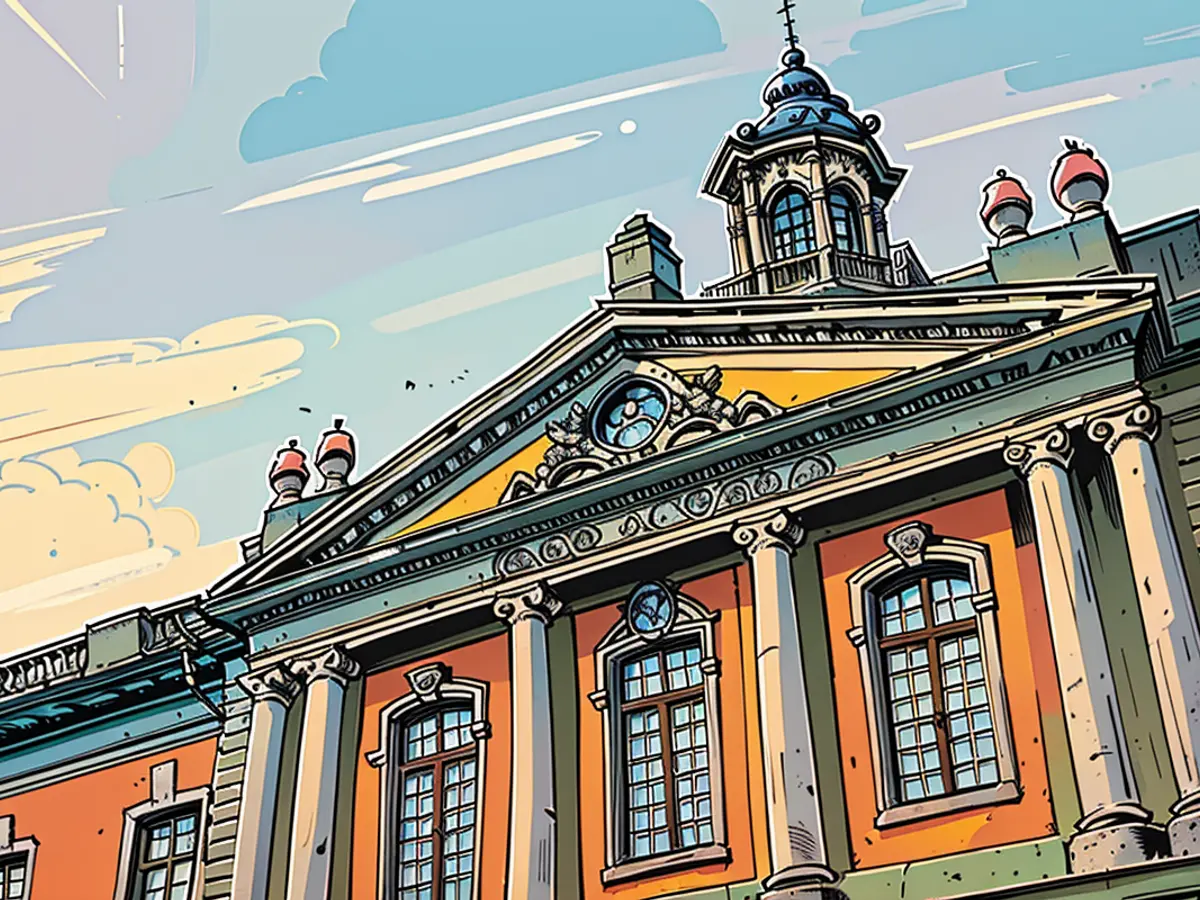What authors are tipped to win the Nobel Prize in Literature?
In recent times, European authors have been the primary recipients of the Nobel Prize in Literature. The questioned honor goes to who this year? A notable contender emerges from Asia.
European literature cannot complain about a deficiency in Nobel accolades: Majority of late Nobel laureates in Literature hail from Europe, including Norwegian Jon Fosse as well as Frenchwoman Annie Ernaux.
Again, the focus is on a historical setting in Stockholm's aged town: The Swedish Academy will reveal the chosen recipient of this year's Nobel Prize in Literature on this coming Thursday. A multitude of possibilities: According to the Academy, approximately 200 names have been considered for the list – yet kept secret for fifty years.
For now, all we can do is speculate: Will the Nobel Prize break its European streak this year and honor a global writer? Or will it remain on the European continent and potentially commemorate a German-speaking author, five years after Peter Handke's award, fifteen years after Herta Müller's, twenty years after Elfriede Jelinek's, and twenty-five years after Günter Grass received it?
An Asian Prospect
Swedish Radio's literary critique Ulrika Milles anticipated last year's award to Jon Fosse and proposed that it might be time for the prize to head to Asia and perhaps to a woman. Her recommendation has proven accurate three times in the past four years.
As of now, her preferred candidate remains unknown. However, a notable contender at two online betting sites aligns with Milles' criteria: Chinese writer Can Xue holds advantageous odds for an award.
Frequently mentioned choices include Canadian Anne Carson, Russian Ljudmila Ulitzkaja, Kenyan Ngugi wa Thiong'o, Australian Gerald Murnane, and Japanese Haruki Murakami.
A Cultural Mediator
German literary critic Denis Scheck advocates that it's long overdue for the Nobel Prize jury to honor Salman Rushdie. "Rushdie serves as a bridge between two worlds, India and the UK," Scheck maintains. "He has become an emblem of free speech and unyielding resistance against censorship."
Rushdie, writer of "The Satanic Verses," fell victim to a fatwa issued by Iran's Ayatollah Khomeini in the late 1980s. In 2022, he survived a deadly attack in the US. This year, his publication "Knife – Thoughts After an Attempted Murder" was released, where the Indian-born British-American writer ponders on the attack and its repercussions.
Scheck also supports other authors of global prestige for the title: If given the choice, he would co-award Rushdie alongside American Thomas Pynchon, whom he terms the "great postmodernist of American literature."
The Canadian and German Contenders
From a German perspective, this year is marked by chiefly semicentennial anniversaries: Ninety-five years ago, Thomas Mann was bestowed the Nobel Prize in Literature, twenty-five years ago Grass, and fifteen years ago Herta Müller. The last German-speaking author to be honored with the prize was the Austrian Handke, five years ago.
Are there any potential laureates who write in German today? Scheck identifies several of them. His preferred candidate in this regard is the Austrian Christoph Ransmayr. "He has more than deserved the prize because he has undeniably contributed a distinctive facet to world literature," Scheck says about the author of the novel "Cox or The Course of Time"
In his view, representatives of a younger generation such as Jenny Erpenbeck, Daniel Kehlmann, and Judith Hermann are also competing in the Nobel league. Scheck would also see prizes for Arno Geiger or Sasa Stanisic as fitting.
The literary critic does not appear to be the only one who has Jenny Erpenbeck on his radar: Presently, novels by some Nobel Prize nominees are on display at a bookstore in Stockholm's center, including works by Murakami, Atwood, and American Joyce Carol Oates – as well as Erpenbeck's "Kairos" and "Heimsuchung".
Who it will be in the end? The world public will find out on Thursday not before 1:00 PM. The laureate will be traditionally awarded on the passing day of the prize founder and dynamite inventor Alfred Nobel (1833-1896) on December 10th. The prizes, awarded since 1901, again come with a grant of eleven million Swedish kronor (approximately 970,000 euros) per prize category for this year.
Despite the majority of recent laureates being European, the question arises: Will the Nobel Prize break its European streak and honor an Asian writer this year? According to Swedish Radio's literary critique Ulrika Milles, Chinese writer Can Xue is a notable contender with advantageous odds for the award.
Furthermore, German literary critic Denis Scheck emphasizes that it's long overdue for the Nobel Prize jury to honor Salman Rushdie, who serves as a bridge between India and the UK and has become an emblem of free speech.






